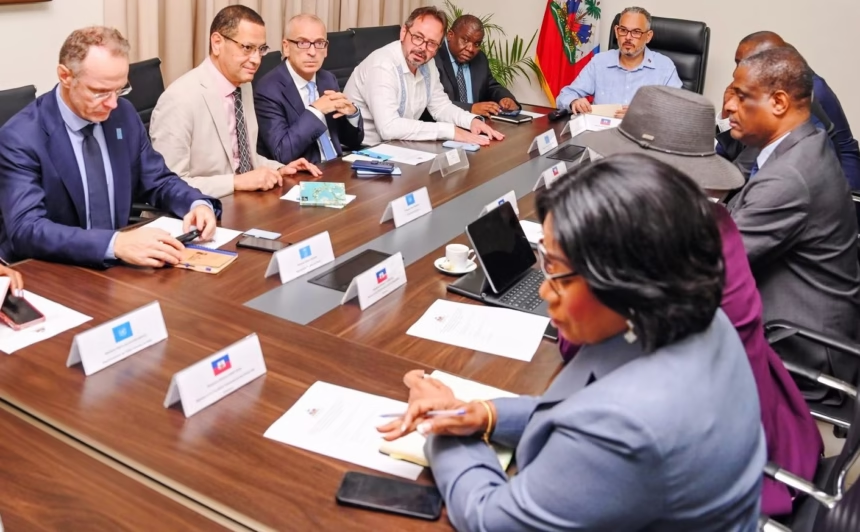On Tuesday, November 11, 2025, Prime Minister Alix Didier Fils-Aimé met with national and international actors to discuss electoral coordination.
The session focused on improving dialogue and coordination among stakeholders, according to an official statement.
The statement said that this meeting is part of an open dialogue and accountability aimed at securing political stability and restoring constitutional order through elections.
The head of government emphasized the importance of transparent and ongoing cooperation between Haitian institutions and foreign partners, stressing that the state must oversee the electoral process.
He said the government leads the electoral process and ensures Haitian sovereignty.
Participants reviewed security, logistics, and technical details for the elections and set up the Sectoral Table and Donors Table. These groups will coordinate and gather resources for the vote.
Prime Minister Fils-Aimé reaffirmed the importance of national responsibility in conducting the process, noting that the Haitian state has already contributed $70 million to the common electoral fund, managed by the UNDP, since 2021.
Additionally, the 2025-2026 budget allocates more than 3 billion gourdes in support of political party financing.
Political Party Capacity Building
The government started a capacity-building program for political parties. Over 225 parties have registered with the Ministry of Justice and Public Security.
The Provisional Electoral Council (CEP) has drafted an electoral decree and is consulting with stakeholders. It expects to publish the decree and calendar by the end of November, a key step in the process.
The Prime Minister emphasized that the success of the elections will depend primarily on the commitment of the Haitian people.
“The executive, led by the head of government, is firmly committed to fostering dialogue and safeguarding democratic sovereignty for free, inclusive, and peaceful elections,” the statement said.
The head of government was joined by several members of his cabinet, advisers from the Provisional Electoral Council (CEP), representatives from the Haitian National Police (PNH) and the Haitian Armed Forces (FAd’H), as well as technical and financial partners from the international community.
Haiti’s Transitional Presidential Council must organize general elections before February 7, 2026, when its nine members are required to leave office. Gang violence, however, still threatens the process.
The United Nations indicated in a recent report that between July 1 and September 30, 2025, at least 1,247 people were killed and 710 were injured in violence involving gangs, self-defense groups, unorganized civilians, as well as during operations conducted by security forces.
UN Security Council members warned Haitian leaders on Wednesday, October 22, that time is running out to restore security and hold elections.
“Transition time is extremely limited. I am concerned that no stable path toward a return to democratic governance has yet been established, and urgent action is needed,” said Carlos Ruiz Massieu, the UN Secretary-General’s Special Representative for Haiti and head of the United Nations Integrated Office in the country.








